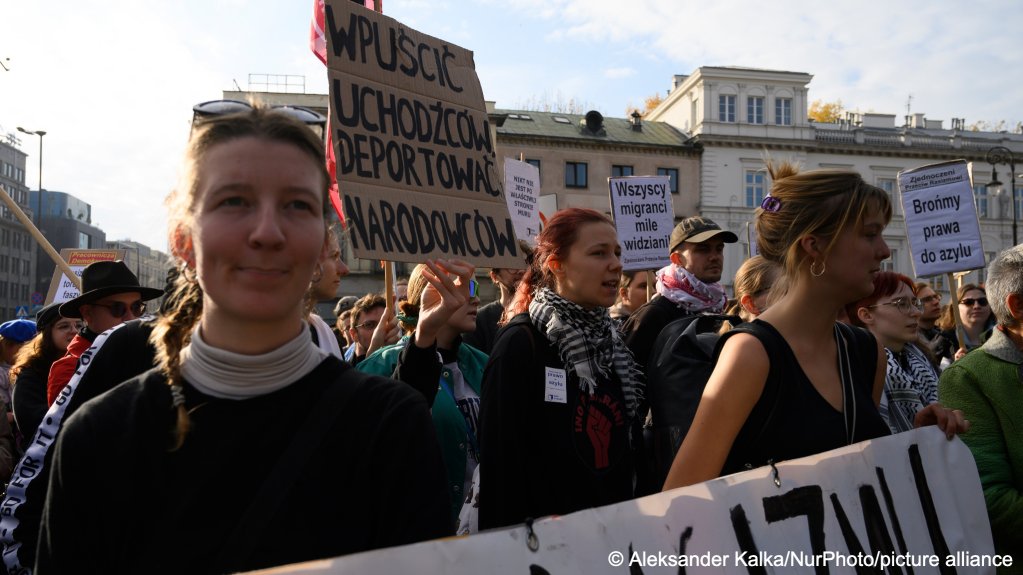The Polish parliament voted by an overwhelming majority to extend the suspension of asylum applications from Belarus for another 60 days.
Poland's parliament on Wednesday (May 21) voted to extend the suspension of asylum applications from Belarus for another sixty days.
The measure, which was first adopted in March, was backed by an overwhelming majority of 366 parliamentarians while 17 voted against, reported Euronews.
Certain categories of people with special needs, such as children, pregnant women, individuals with special healthcare needs, and people deemed at "real risk of harm" if returned over the border, are exempted from the suspension. A reported last-minute amendment to the bill also allows families accompanying minors to claim asylum under the new restrictions.
Polish Prime Minister Donald Tusk defended the move as a necessary measure to counter what he describes as a coordinated effort by Russia and Belarus to destabilize Europe through migration. "It was of decisive importance for my government to close the border immediately, so that the practice that everyone who wants to enter Poland can do so is not repeated," he was quoted as saying by dpa.

Ongoing tension between Russia and Ukraine has many in Poland anxious that if Russia prevails in Ukraine, Poland could be next. Such a scenario raises concerns about a return to the Russian sphere of influence that began at the close of World War II in 1945 and lasted until the collapse of communism in 1989.
Read AlsoPoland: New law temporarily suspending asylum in force, despite criticism
Missing and dying in forests and swamps
Warsaw has said that crossings of the border have increased again over the last year, and is a cause for worry over being "stormed" by large groups of migrants. Last summer, a Polish soldier was killed while on border patrol.
Despite a fortified border fence, armed guards, and reports of growing violence in the exclusion zone, the Belarus-Poland corridor remains a widely used migratory path for those attempting to irregularly enter Europe. While crossings of the Mediterranean or Atlantic Oceans in flimsy boats are more commonly known for their dangers, the forests and swamps along the Poland-Belarus border are proving just as deadly. Human rights groups report the deaths of around 100 migrants in the border area between Belarus and Poland since 2021, but say that the number could actually be higher.
A recent documentary by DW revealed that an increasing number of migrants taking the route through Belarus into Poland are disappearing without a trace. Families in countries like Iraq, Syria, and Egypt are left searching, often with the help of Polish volunteers.
Read AlsoWhere are you? Missing between Belarus and Poland
Human rights violation
As early as October, when Polish Prime Minister Donald Tusk announced plans to temporarily suspend asylum applications, about 40 human rights groups signed an open letter to Tusk saying that the right to claim asylum is not a political bargaining tool.
Humanitarian aid agency, Doctors Without Borders (known by their French acronym MSF), had warned that the suspension of asylum claims would lead to more harmful border practices and expose vulnerable people to life-threatening conditions.
In a statement, The Halina Nieć Legal Aid Center, which provides free legal aid to people applying for asylum in Poland, then said, "There is no doubt that Poland has the sovereign right to protect its borders and to control the entry and residence of foreigners on its territory ... From an asylum law perspective, one cannot speak of respecting the human rights of those seeking international protection without individually examining each person’s situation and maintaining the prohibition against returning them to a place where they face danger."
Last month, the Polish government launched an information campaign in countries of origin to discourage migrants from entering Poland through Belarus.
"Our message will be simple: the Polish border is sealed. Do not believe the smugglers, do not believe (Alexander) Lukashenko, do not believe (Vladimir) Putin," Tusk said at the time, referring to the Belarusian and Russian leaders.
Read AlsoPoland: Government pushes forward on stricter migration measures
